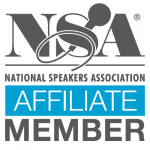Congress shall make no law respecting an establishment of religion, or prohibiting the free exercise thereof; or abridging the freedom of speech, or of the press; or the right of the people peaceably to assemble, and to petition the Government for a redress of grievances.
There’s been a lot of talk lately about the First Amendment and what those rights are. It’s important to go back to the basics, the actual words passed by Congress September 25, 1789 and ratified December 15, 1791, then look at how it’s been interpreted since.
Although the First Amendment says “Congress,” the Supreme Court has held that private individuals are protected against all government agencies. However, the First Amendment does not protect private individuals, from other private individuals or organizations, such as private employers, private colleges, or private landowners.
The title of this post comes from the famous 1919 SCOTUS decision and Justice Oliver Wendell Holmes, Jr’s opinion. Paraphrasing, Holmes said that the speech must be false and dangerous to not be protected. Speech that is true and dangerous is protected. A 1969 decision of the SCOTUS further defined the earlier ruling to limit the scope of banned speech to that which would be directed to and likely to incite imminent lawless action (e.g. a riot).
Interestingly, the word “crowded” was not a part of Holmes’ original wording of the decision. It was added at some point along the way. So it doesn’t matter if you’re talking to a mob or single person. If what you say is wrong, unsafe, and could cause a riot, the First Amendment does not have your back.






Leave a Reply